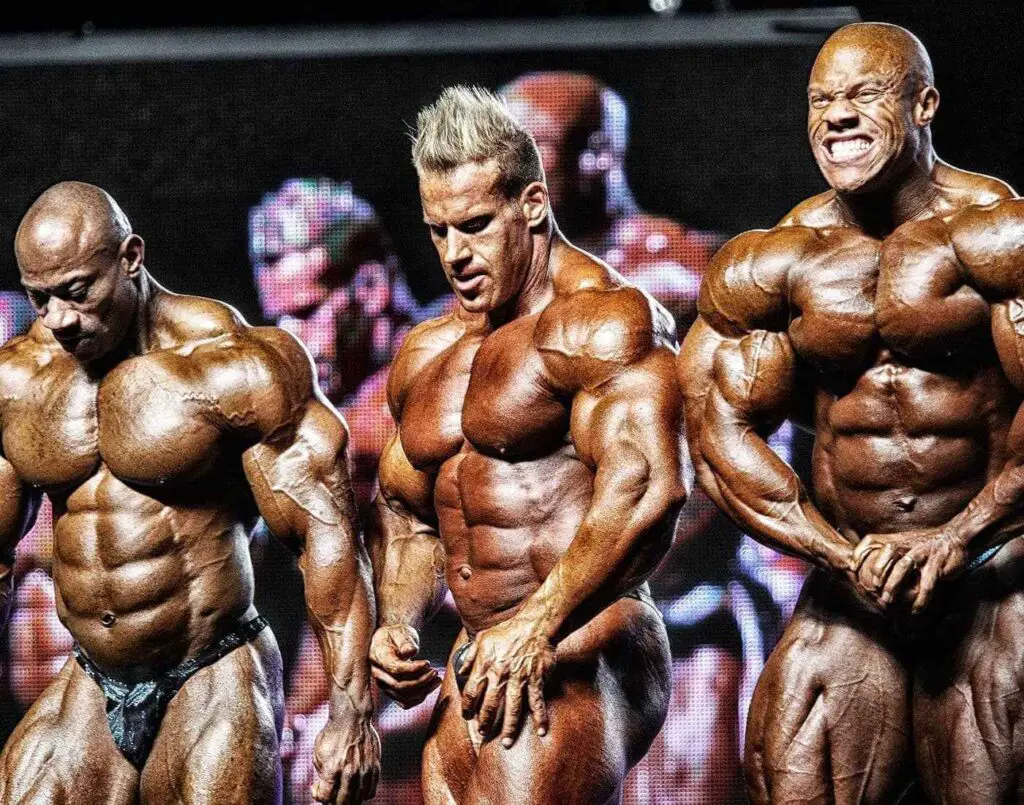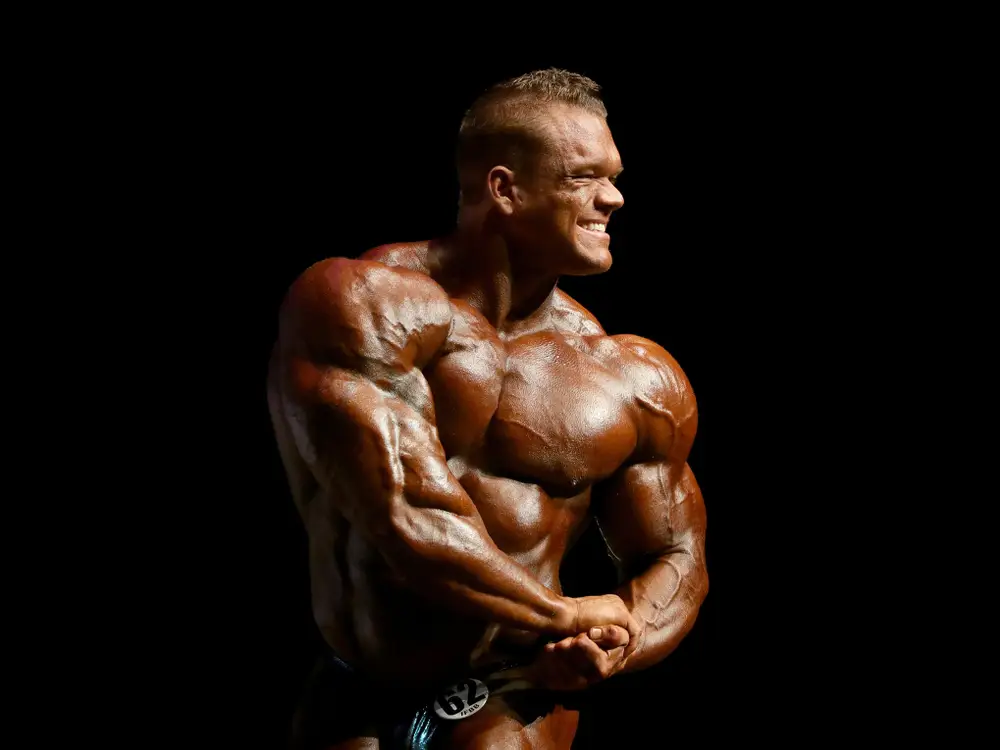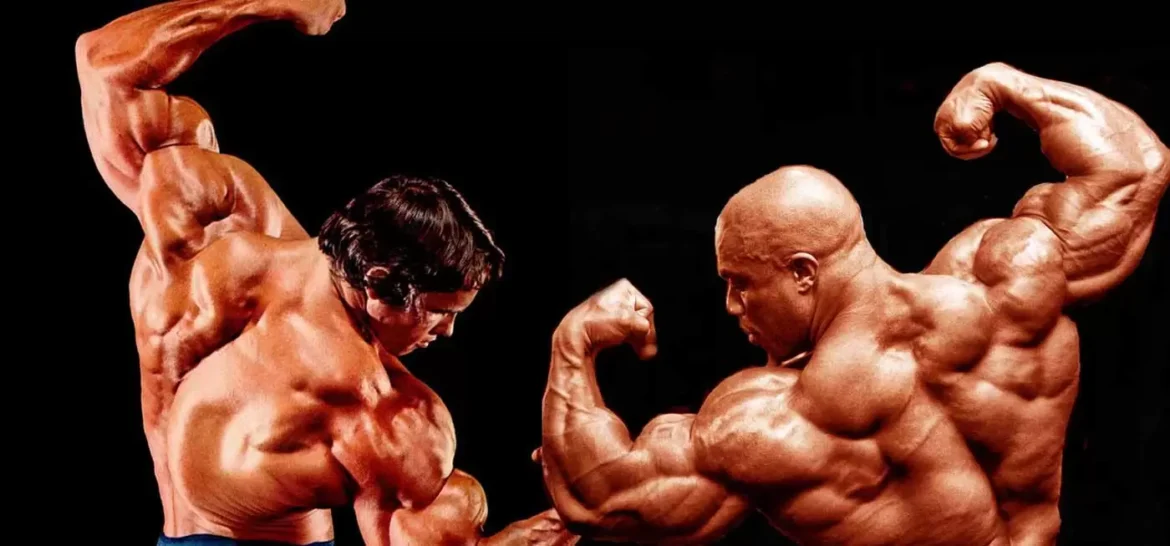Introduction
Is Bodybuilding A Sport: At its core, bodybuilding involves rigorous physical training with the goal of sculpting and developing the muscles to their peak form. Competitors work tirelessly to achieve a well-defined and aesthetically pleasing physique. The process includes weightlifting, cardiovascular conditioning, strict dietary regimens, and intricate posing routines. This intense training demands dedication, discipline, and commitment, qualities commonly associated with athletes in traditional sports.
One key criterion for classifying an activity as a sport is competition. Bodybuilding unquestionably includes competitive events, with athletes taking the stage to display their physiques in front of judges and audiences. These competitions are organized and governed by various bodies and organizations, such as the International Federation of Bodybuilding and Fitness (IFBB). Athletes are evaluated based on criteria like muscle size, definition, symmetry, and overall presentation. The competitive aspect of bodybuilding is undeniably reminiscent of other sports where participants strive to outperform one another.
Bodybuilders must adhere to rules and regulations, including drug testing protocols, to ensure a level playing field. This regulatory framework mirrors the governance seen in traditional sports, further cementing bodybuilding’s status as a sport. Detractors argue that bodybuilding’s subjective judging criteria, focusing on aesthetics rather than athletic prowess or performance, disqualify it from being a sport. They contend that it falls more under the category of a beauty or art contest. The emphasis on aesthetics and the subjective nature of judging indeed make bodybuilding unique among sports.

Is bodybuilding considered as a sport?
Bodybuilding is a sport that dates back to the ancient Greek appreciation for the muscular male physique. Modern bodybuilding was created by the Father of Bodybuilding, Eugen Sandow in the 1890s. The primary focus of the sport is to showcase a muscular, lean physique to the audience.
Competitive Element: At its core, bodybuilding is a competitive endeavor. Athletes train rigorously to improve their physiques and vie for top honors in bodybuilding competitions. Just like in traditional sports, there is a clear competitive aspect where individuals strive to outperform their opponents.
Judging Criteria: Bodybuilding competitions have established judging criteria and rules that athletes must adhere to. Judges evaluate the participants based on specific guidelines, similar to how referees officiate in other sports.
Training and Dedication: The level of training, discipline, and dedication required for bodybuilding is on par with many recognized sports. Athletes undergo intense weightlifting and cardiovascular workouts, maintain strict diets, and endure grueling training regimens to prepare for competitions.
Athleticism: Bodybuilders exhibit athleticism in terms of strength, endurance, flexibility, and precision when performing poses. Their training involves functional movements and exercises that require a high degree of physical skill.
Competitive Calendar: Bodybuilding has a calendar of events and competitions at various levels, from local to international. Athletes must strategize their training and competition schedules, similar to athletes in other sports.
Why is bodybuilding called a sport?
They go through the same struggles as many athletes, and is an internationally recognized sport with many governing bodies at different levels all over the world. Bodybuilding is a sport that offers a wide variety of divisions according to gender, height, weight class and usage of performance enhancing drugs (PEDs).
Competitive Nature
At its core, bodybuilding is a highly competitive activity. Athletes in this discipline engage in rigorous training to develop and sculpt their muscles with the ultimate goal of showcasing their physiques in competitions. Just like in other sports, bodybuilders compete against one another, striving to attain the best possible physique and vying for top honors.
Established Rules and Criteria
Bodybuilding competitions adhere to strict rules and judging criteria. Judges evaluate competitors based on specific guidelines, including factors such as muscle size, symmetry, definition, proportion, and presentation. These standardized rules ensure a level playing field and add a structured, competitive element to the sport.
Athleticism and Training
Bodybuilding requires a high level of athleticism. Athletes engage in strength training, cardiovascular exercise, and precision posing routines. The training process involves functional movements, flexibility, endurance, and coordination, all of which are common elements in other recognized sports.
Dedication and Discipline
The dedication and discipline demanded by bodybuilding are comparable to those required in other sports. Athletes adhere to strict training regimens, maintain meticulous diets, and make significant sacrifices to achieve their goals. This level of commitment is a hallmark of many sports.
Is bodybuilding a sport or art?
While success in other strength sports often relies on empirical, measurable results, success in bodybuilding depends on subjective, impulsive reactions from others. Yes, it can be corralled into a sporting competition, but bodybuilding is a living, breathing art form.
Competitive Nature: Bodybuilding competitions are the epitome of sports competitions. Athletes rigorously train and prepare for contests with the aim of showcasing their physiques and vying for top honors. The competitive aspect is a fundamental element shared with traditional sports.
Judging Criteria: Bodybuilding competitions have established judging criteria that assess specific aspects of an athlete’s physique, such as muscle size, symmetry, definition, proportion, and presentation. This objective assessment parallels the scoring systems used in other sports, where judges evaluate athletes based on established standards.
Physical Demands: Bodybuilding demands a high degree of physical athleticism. Athletes engage in intense resistance training, cardiovascular exercise, and precision posing routines. These physical demands are akin to those faced by athletes in other sports.
Training and Dedication: The level of training, discipline, and dedication required for bodybuilding is on par with many recognized sports. Athletes adhere to strict training regimens, maintain meticulous diets, and make significant sacrifices to excel in their sport.
Competitive Calendar: Bodybuilding boasts a comprehensive calendar of events, ranging from local competitions to prestigious international championships. Athletes must strategize and plan their training and competition schedules, a characteristic shared with athletes in other sports.
What type of sport is body building?
Bodybuilding is a sport in which the athlete is judged on muscular appearance. Proper preparation for a bodybuilding contest generally involves years of strength training followed by a phase in which the athlete focuses on drastically reducing body fat to improve muscle appearance [1, 2].
Resistance Training: At its core, bodybuilding is a strength sport. Athletes engage in intensive resistance training to build and sculpt their muscles. This involves lifting weights, performing bodyweight exercises, and using various resistance machines to target specific muscle groups. Strength and power are central to bodybuilding.
Competitive Nature: Bodybuilding is a competitive sport where athletes compete against each other to showcase their physiques. Competitions involve athletes presenting their muscular development through a series of poses and routines. Judges evaluate these presentations based on established criteria, such as muscle size, definition, proportion, and symmetry.
Physical Conditioning: Athletes in bodybuilding focus on achieving a high level of physical conditioning. This includes not only building muscle mass but also reducing body fat to achieve a lean and sculpted appearance. The conditioning aspect of bodybuilding is akin to the emphasis on fitness in other sports.
Training Regimen: Bodybuilders follow structured and rigorous training regimens. These regimens encompass a variety of exercises that target different muscle groups. Athletes must continually adjust their training programs to achieve optimal results, much like athletes in other strength and power sports.
Is bodybuilding a sport in India?
Hence, the IBBF (Indian Bodybuilders Federation) was formed to propagate and popularize the sport of bodybuilding in India; it is recognized as the only National Sports Federation for the sport of Bodybuilding in India by the Ministry of Youth Affairs and Sports.
Recognition by Sports Authorities
The Sports Authority of India (SAI), which oversees sports development and promotion in the country, recognizes bodybuilding as a sport. This recognition signifies that bodybuilding is considered a legitimate athletic discipline, and athletes can receive support, facilities, and coaching through SAI programs.
International Participation
Indian bodybuilders have represented the country at international competitions, including the prestigious Mr. Olympia and Arnold Classic events. The success of Indian bodybuilders on the international stage has further elevated the sport’s status in India.
Training and Infrastructure
India boasts a growing number of gyms, fitness centers, and training facilities that cater specifically to bodybuilders and fitness enthusiasts. These facilities provide the necessary equipment and expert guidance required for bodybuilding training.
Is gym a sport yes or no?
There’s no right or wrong answer to this question, it’s simply a matter of personal opinion. For me, going to the gym is absolutely a sport. It requires dedication, discipline, and a competitive nature. I love the challenge of pushing my body to its limits and seeing how far I can push myself.
Competition: One of the defining characteristics of a sport is competition, and many gyms host competitive events and challenges. These can include weightlifting competitions, powerlifting meets, bodybuilding contests, or CrossFit competitions. Participants train rigorously to compete against others, just like athletes in traditional sports.
Structured Training: People who train at the gym often follow structured training programs designed to improve their physical abilities, whether it be strength, endurance, or flexibility. These programs require dedication, discipline, and goal-setting, which are common elements in sports.
Athleticism: Many gym-goers engage in activities that require athleticism. This includes lifting heavy weights, performing complex gymnastic movements, or pushing their bodies to achieve certain physical feats. Athleticism is a fundamental aspect of sports.
Mental Focus: Gym enthusiasts often emphasize mental focus and discipline in their training. Just like athletes in other sports, they must stay motivated, set goals, and work through challenges to achieve success.
Is Mr Olympia a sport?
Mr. Olympia is the world’s most prestigious bodybuilding competition, and for good reason. Iconic bodybuilders like Frank Zane, Ronnie Coleman, and Arnold Schwarzenegger have all brung home the coveted Sandow trophy. Their victories have catapulted their careers, and the sport’s popularity.
Competitive Nature: Mr. Olympia is fundamentally a competitive event. Bodybuilders from around the world train intensively, aiming to showcase their physiques and vie for the prestigious title. The competition aspect aligns with the core elements of traditional sports.
Established Judging Criteria: Mr. Olympia has clearly defined judging criteria that evaluate competitors based on specific guidelines, such as muscle size, symmetry, definition, proportion, and overall presentation. This structured judging system is similar to those employed in recognized sports.
Physical Demands: Preparing for Mr. Olympia requires a high level of physical conditioning. Athletes engage in rigorous weightlifting, cardiovascular exercise, and precise posing routines. The physical demands placed on bodybuilders are comparable to those faced by athletes in other sports.
Training and Dedication: Athletes who participate in Mr. Olympia demonstrate an exceptional level of training, discipline, and dedication. They adhere to strict training regimens, maintain meticulous diets, and make significant sacrifices to excel in the competition, mirroring the commitment seen in other sports.
Who made bodybuilding a sport?
Eugen Sandow
Bodybuilding developed in the late 19th century, promoted in England by German Eugen Sandow, now considered as the “Father of Modern Bodybuilding”. He allowed audiences to enjoy viewing his physique in “muscle display performances”.
Eugene Sandow (1867-1925)
Often referred to as the “Father of Modern Bodybuilding,” Eugene Sandow was a renowned strongman and bodybuilder from the late 19th and early 20th centuries. He organized one of the earliest bodybuilding competitions in 1901, which can be considered a precursor to modern bodybuilding contests. Sandow’s emphasis on aesthetics and muscular development laid the foundation for the sport’s focus on physique and symmetry.
Joe Weider (1919-2013)
Joe Weider, along with his brother Ben Weider, played a pivotal role in popularizing bodybuilding as a sport. They founded the International Federation of Bodybuilding & Fitness (IFBB) in 1946, which became one of the most prominent governing bodies for bodybuilding. The Weiders also launched influential bodybuilding magazines, such as “Muscle & Fitness” and “Flex,” helping to promote the sport and its athletes.
Arnold Schwarzenegger
Arnold Schwarzenegger is an iconic figure in bodybuilding history. His impressive physique and charisma contributed significantly to the sport’s growth and popularity during the 1970s. Schwarzenegger’s success as a bodybuilder, including winning the prestigious Mr. Olympia title multiple times, made him a global ambassador for the sport.

Conclusion
Bodybuilding undoubtedly exhibits many elements commonly associated with sports. The rigorous physical training, competitive events, and the need for dedication, discipline, and commitment make a strong case for its classification as a sport. Athletes in bodybuilding adhere to rules, regulations, and drug testing protocols, much like their counterparts in traditional sports. The presence of governing bodies, such as the IFBB, further legitimizes its status as a sport.
However, the unique nature of bodybuilding sets it apart. Unlike many traditional sports that focus on objective measures of performance, bodybuilding emphasizes aesthetics and subjective judging criteria. This inherent subjectivity, coupled with the fact that bodybuilders do not compete against each other in direct physical contests, has led some to argue that it is more of an art or beauty contest.
Whether one considers bodybuilding a sport may depend on personal perspectives and definitions of sports. The distinction between sports, art, and beauty can be blurry at times, and bodybuilding resides in that gray area. It is a discipline that bridges the gap between athleticism and aesthetics, challenging our conventional notions of what constitutes a sport.

